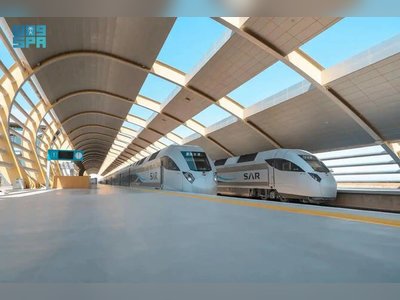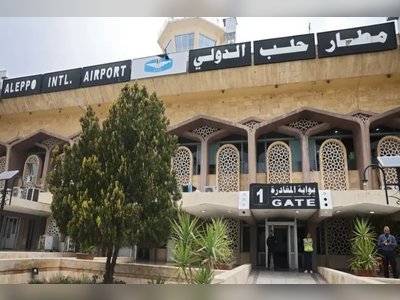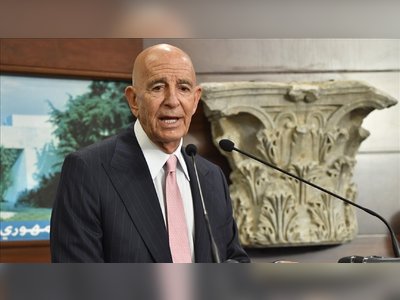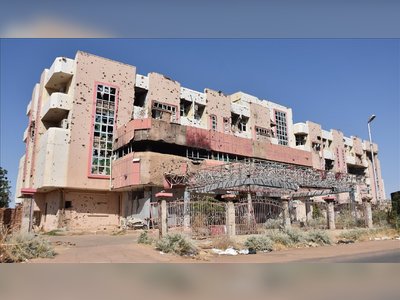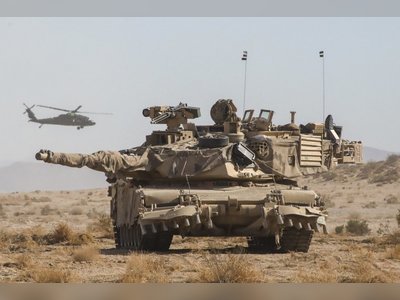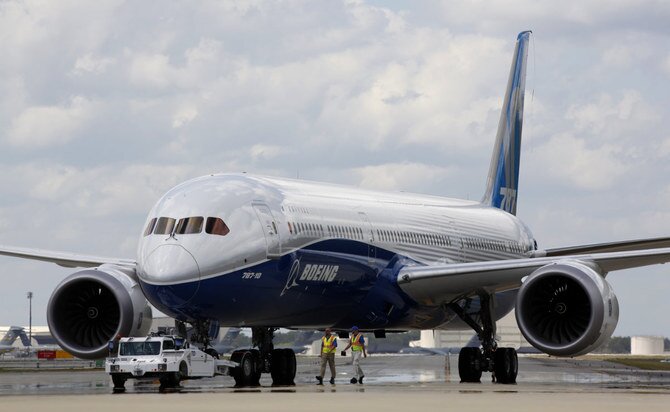
FAA Investigates Boeing Whistleblower's Allegations of Safety Concerns Dismissal in 787 and 777 Production
The FAA is investigating claims made by a Boeing whistleblower, Sam Salehpour, that the company disregarded safety and quality concerns during the production of their 787 and 777 jets.
Salehpour, a Boeing engineer, alleges that he faced retaliation, including threats and exclusion from meetings, after identifying engineering problems that affected the structural integrity of the jets.
Boeing has been dealing with a safety crisis following a mid-air panel blowout on a 737 MAX plane, which has resulted in a management shakeup, regulatory curbs on production, and a 50% decrease in deliveries in March.
Boeing stopped delivering the 787 wide-body jet for over a year from August 2021 due to quality issues and manufacturing flaws under investigation by the Federal Aviation Administration (FAA).
In 2021, Boeing identified some 787 airplanes with incorrectly sized shims and areas that did not meet skin-flatness specifications.
A shim is a thin material used to fill small gaps.
Boeing expressed confidence in the 787 Dreamliner, dismissing these claims as inaccurate.
Salehpour, a former Boeing engineer, alleged that Boeing took shortcuts during the 787 assembly process, causing excessive stress on major joints and embedding drilling debris between key joints on over 1,000 planes.
A Boeing executive, Salehpour, revealed issues with misaligned parts in the production of 777 widebody jets, which were resolved by using force.
The disclosure led to a 2% decrease in Boeing shares and an FAA investigation.
The FAA encouraged industry reporting and met with the whistleblower.
Salehpour is a member of the Society of Professional Engineering Employees in Aerospace and works at Boeing's Everett, Washington plant.
The engineering union declined to comment on specific concerns raised by Salehpour, an ex-Boeing engineer.
The Senate Committee on Commerce, Science, and Transportation, led by Senators Richard Blumenthal and Ron Johnson, will hold a hearing on Boeing safety issues with Salehpour on April 17.
The hearing, titled "Examining Boeing's Broken Safety Culture: Firsthand Accounts," aims to allow Boeing to explain recent safety concerns to the public.
Initially, the panel sought to have Boeing CEO Dave Calhoun testify at the hearing but he has since announced his intention to step down by year-end.
Salehpour's lawyers stated that he will provide documentation to the Federal Aviation Administration (FAA) for the hearing.
A Boeing employee, Salehpour, raised concerns about safety issues on the 787 program in 2021, but Boeing prioritized getting the planes to market quickly instead of addressing these issues.
The FAA Administrator, Michael Whitaker, has taken a tough stance on Boeing following an emergency on an Alaska Air flight on Jan. 5, and has barred the company from expanding 737 MAX production and required a plan to address quality-control issues within 90 days.
Additionally, the US Department of Justice is investigating whether Boeing violated a 2021 settlement, known as a deferred prosecution agreement, following two fatal MAX crashes in 2018 and 2019.
This agreement shielded Boeing from prosecution on a charge of conspiring to defraud the FAA.
Prosecutors will rely on the FAA's investigations to determine if Boeing broke the terms of a previous settlement.
The FAA approved the delivery of the first Boeing 787 Dreamliner since 2021 in August 2022, after Boeing made necessary changes for certification.
There are approximately 1,100 Dreamliners in service.
Boeing has been dealing with a safety crisis following a mid-air panel blowout on a 737 MAX plane, which has resulted in a management shakeup, regulatory curbs on production, and a 50% decrease in deliveries in March.
Boeing stopped delivering the 787 wide-body jet for over a year from August 2021 due to quality issues and manufacturing flaws under investigation by the Federal Aviation Administration (FAA).
In 2021, Boeing identified some 787 airplanes with incorrectly sized shims and areas that did not meet skin-flatness specifications.
A shim is a thin material used to fill small gaps.
Boeing expressed confidence in the 787 Dreamliner, dismissing these claims as inaccurate.
Salehpour, a former Boeing engineer, alleged that Boeing took shortcuts during the 787 assembly process, causing excessive stress on major joints and embedding drilling debris between key joints on over 1,000 planes.
A Boeing executive, Salehpour, revealed issues with misaligned parts in the production of 777 widebody jets, which were resolved by using force.
The disclosure led to a 2% decrease in Boeing shares and an FAA investigation.
The FAA encouraged industry reporting and met with the whistleblower.
Salehpour is a member of the Society of Professional Engineering Employees in Aerospace and works at Boeing's Everett, Washington plant.
The engineering union declined to comment on specific concerns raised by Salehpour, an ex-Boeing engineer.
The Senate Committee on Commerce, Science, and Transportation, led by Senators Richard Blumenthal and Ron Johnson, will hold a hearing on Boeing safety issues with Salehpour on April 17.
The hearing, titled "Examining Boeing's Broken Safety Culture: Firsthand Accounts," aims to allow Boeing to explain recent safety concerns to the public.
Initially, the panel sought to have Boeing CEO Dave Calhoun testify at the hearing but he has since announced his intention to step down by year-end.
Salehpour's lawyers stated that he will provide documentation to the Federal Aviation Administration (FAA) for the hearing.
A Boeing employee, Salehpour, raised concerns about safety issues on the 787 program in 2021, but Boeing prioritized getting the planes to market quickly instead of addressing these issues.
The FAA Administrator, Michael Whitaker, has taken a tough stance on Boeing following an emergency on an Alaska Air flight on Jan. 5, and has barred the company from expanding 737 MAX production and required a plan to address quality-control issues within 90 days.
Additionally, the US Department of Justice is investigating whether Boeing violated a 2021 settlement, known as a deferred prosecution agreement, following two fatal MAX crashes in 2018 and 2019.
This agreement shielded Boeing from prosecution on a charge of conspiring to defraud the FAA.
Prosecutors will rely on the FAA's investigations to determine if Boeing broke the terms of a previous settlement.
The FAA approved the delivery of the first Boeing 787 Dreamliner since 2021 in August 2022, after Boeing made necessary changes for certification.
There are approximately 1,100 Dreamliners in service.
Translation:
Translated by AI



